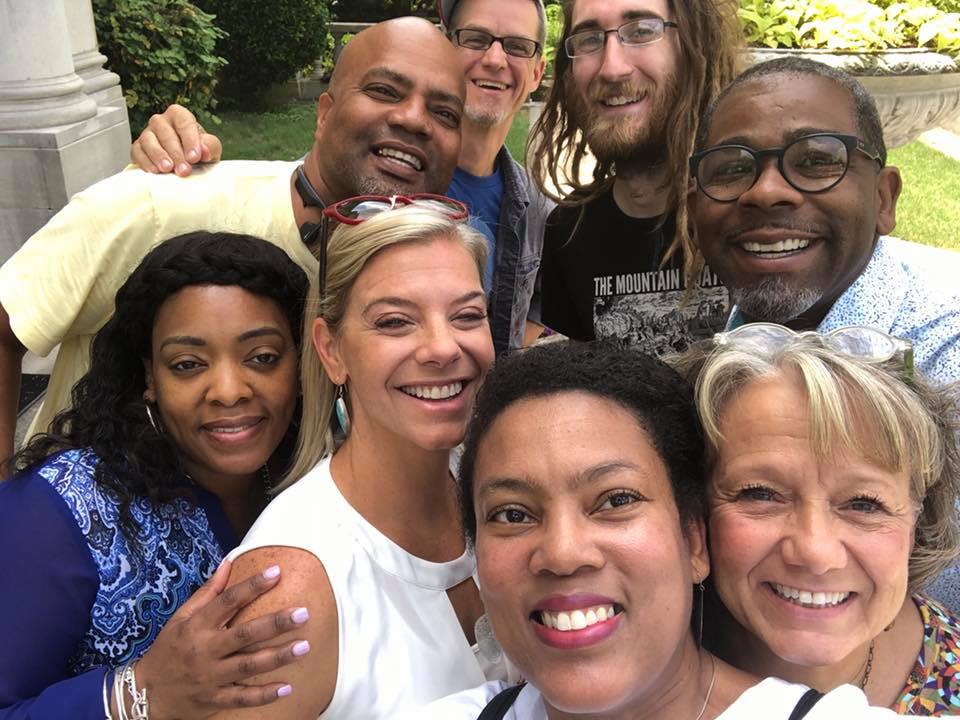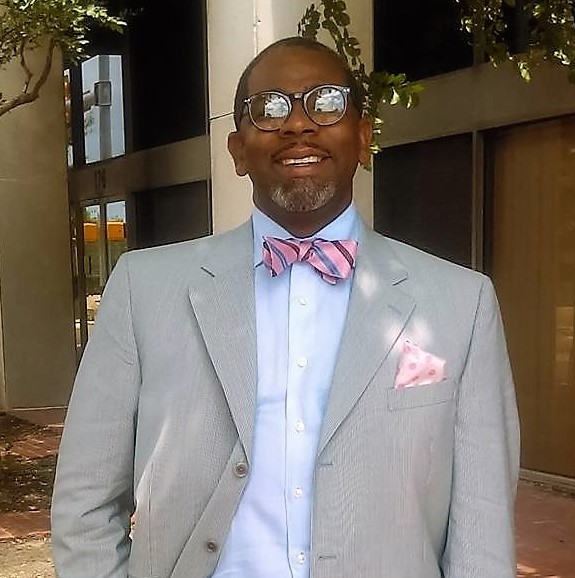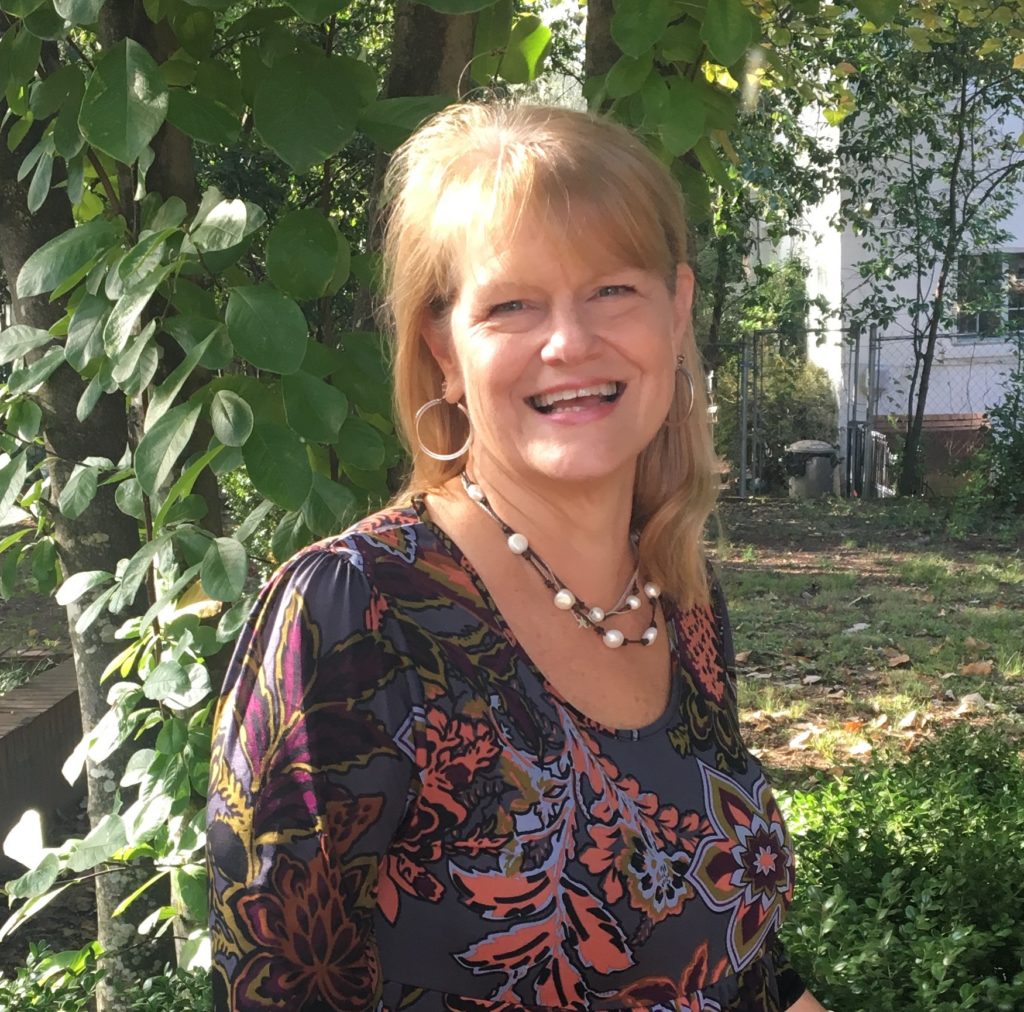
In June 2018, the first cohort of the new Doctor of Ministry in Land, Food, and Faith Formation met on the MTS campus. The first class, “Biblical Theological, and Historical Visions of the Land, Food, and Community,” was taught by Rev. Dr. Noah Campbell.
For Dr. Campbell, food and its production is inseparable from faith: “From seed and soil to table and sink, we invest ourselves in the spiritual and communal dimensions of land cultivation, as well as the narrative arcs of seedtime and harvest, and receiving and sharing. We discover food as a currency of Christ’s presence, and in this discovery, we are more fully formed for incarnational mission and ministries of mercy and justice.”
D’Leigh Harvell graduated from MTS with an MDiv in May 2015, and is a student in the first co-hort for the new DMin. She is currently appointed to Temple United Methodist Church in Millington, TN. “Temple UMC has an active ministry called Food and Faith,” Harvell says, “We are also blessed with several acres of fertile ground.” Harvell’s congregation was awarded a grant from Memphis Tilth to fund a community garden. “Being good stewards of God’s good earth is important to our faith family,” Harvell says, “So when I heard that MTS was offering a brand-new track, in Land, Food, and Faith Formation, I felt called to apply.”

“The first term was an engaging educational experience,” Harvell says, “The diversity of the cohort is rich! We are a beautiful blend of denominations, races, ages, professions, experiences, and geographical locations. I am excited to see where God leads me in this educational and spiritual journey. I am also excited to see how the doctoral project unfolds in my local church and community.”
Steven Bradley graduated from MTS with an MDiv in 2016, but jumped at the chance to join the DMin in Land, Food, and Faith Formation. “For the last 23 years I’ve been in food service as a certified Executive Chef,” Bradley Says, “And my passion for food goes all the way back to my grandmother in Arkansas. Sometimes I’d find her in the middle of the night in the kitchen making biscuits or waffles. She’d set me up on the counter and explain food to me—where food comes from, how food had changed over time. She told me about how people used to have community gardens and share their food.”

Bradley currently serves as a school district director of nutrition. “All of my school districts are in rural areas, ” he says, “in food deserts, with no access to fruits and vegetables.” With the help of grant money and federal funds, Bradley began community gardens at the schools where he serves. “Through introducing healthier foods, the kids became healthier. We were able to bring down kids’ BMI and help control diabetes. We also included the community.”
For Bradley, the Land, Food, and Faith Formation DMin was a perfect venue to explore issues he’s passionate about, like faith and health. “The DMin in Land, Food, and Faith Formation includes nutritional issues but also brings in biblical principles of the care of the land. This allows me to be well-equipped when dealing with food deserts as well as food swamps. We have to look at farming practices and the distribution of food to the least of these as we move forward. In our assigned readings, we are unpacking texts and scriptures while keeping them in context. We are considering what God means by to take dominion, and how we have distorted those words and used them to abuse the land.”

Martha Lyle Ford, co-director of the Center for Faith and Imagination at MTS, helped develop the new DMin. She says, “We wanted to create a DMin track with a rural ministry focus that would be unique in its focus on land, agriculture, and food. Dr. Gathje had been teaching a course integrating some of these themes for several years, but the seminary had no real rural ministry initiative,” Ford says, “A lot of folks who come out of MTS are placed or pastor in rural areas and are ill-equipped to understand that setting and the economics and the social dimensions of life and pastoring that are fairly distinct in a rural area. This isn’t a ‘foodie’ DMin, and it’s not just a creation care DMin.”
Ford is now a student in the first cohort of the three-and-a-half year program. “Having been part of the conversation in developing the DMin. track, it’s a real thrill to be part of the first cohort! To have an official DMin track established on topics that I, personally, and so many others are eager to study is a truly wonderful thing. This program is cutting-edge and is a great place for us to grapple with what is meant by God’s putting us in the garden ‘to till and keep it.'”
The cohort’s second class, “Theologies of the Land,” will begin in January 2019 and will be taught by Rev. Heber Brown III, a pastor and community organizer from Baltimore and Rev. Nurya Love Parish, founder of Plainsong Farm in Rockford, Michigan. In June 2019, students will travel to the Chattanooga area for a two-week immersion in local agencies, congregations, and organizations.
“This is a new area of ministry,” Ford says, “It’s a significant movement, but not as much in the Southeast. MTS is uniquely situated to offer this, because it’s located in the heart of a large agricultural area,” Ford says, “My sense is, once the word gets out about this, it will be a much sought-after degree.”
